#esc 1993
Explore tagged Tumblr posts
Text
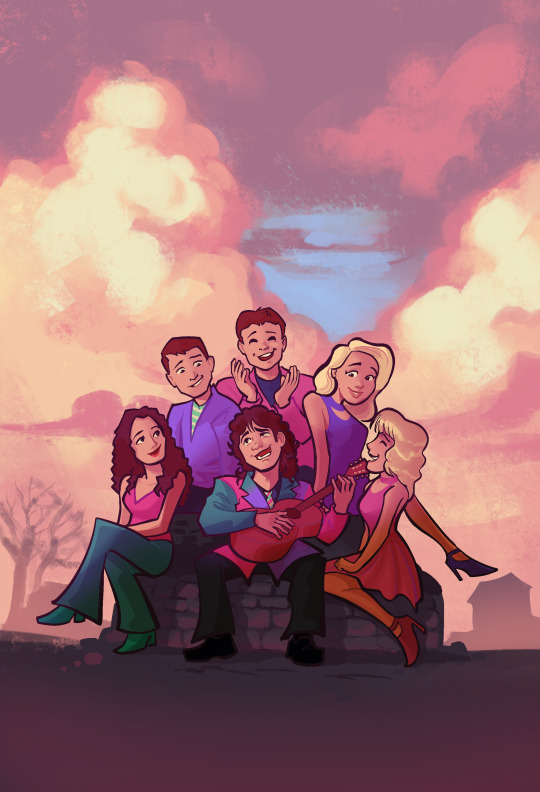
🇸🇮 1xBand - Tih deževen dan
#1xBand#Tih deževen dan#another debut! welcome to eurovision Slovenia#Slovenia esc#Slovenia eurovision#esc 1993#eurovision 1993#Slovenia and Denmark easily had the most underrated songs in 1993#I am not kidding when I say this is one of my all-time favourite esc songs...#I tried my best but... if only there were more than 5 images and 3 480p videos available of this band
38 notes
·
View notes
Text
Eurovision Fact #595:

Noel Kelehan, one of the conductors of the former Eurovision orchestra, conducted the songs of five winners. He conducted the winning songs in 1980, 1987, 1992, 1993 and 1996.
[Source]
Facts and Figures, Eurovision.tv.
#esc facts oc#eurovision#eurovision song contest#esc#eurovision facts oc#Noel Kelehan#esc 1980#esc 1987#esc 1992#esc 1993#esc 1996
9 notes
·
View notes
Photo

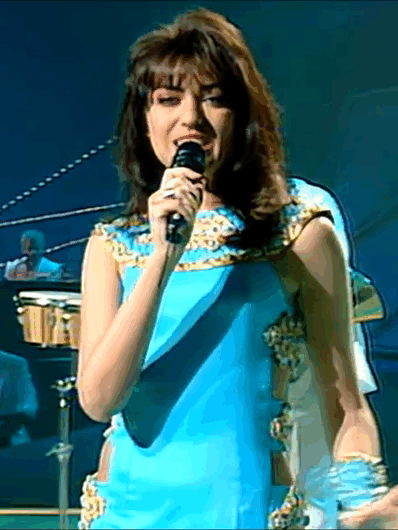
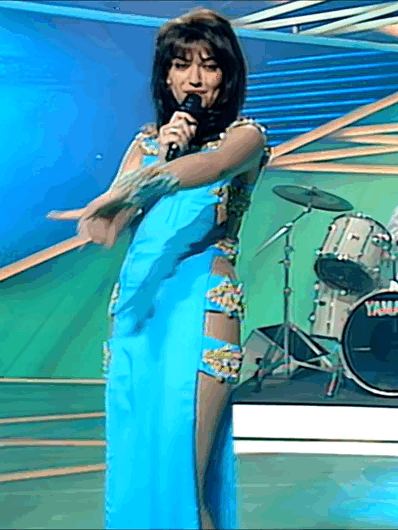



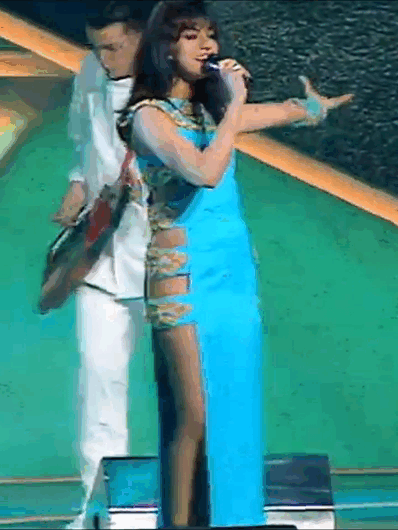


Eurovision Song Contest + Costumes
Katy Garbi’s blue & golden dress when performing Ellada, hora tou fotos for Greece in the 1993 contest.
// requested by @betweenthetimeandsound
#Eurovision Song Contest#Eurovision#ESC#ESC 1993#Katy Garbi#Ellada hora tou fotos#Greece#costumes#costumesource#blue#golden#1990s#1900s#20th century#tw flashing lights#cw flashing lights#cn flashing lights
27 notes
·
View notes
Text
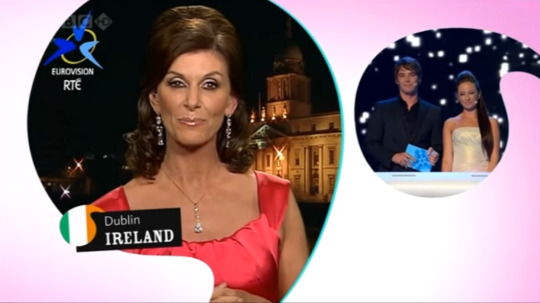



Linda Martin and Niamh Kavanagh presenting the votes for Ireland on the 15th (2007, 2008) and 30th (2022, 2023) anniversaries of their wins
9 notes
·
View notes
Video
youtube
Love's been building bridges between your heart and mine I'm safe here on my island, but I'm out on the edge this time I built a wall around me, thought I'd save myself the pain Your touch swept me away, now I'll never play it safe again
In your eyes - Ireland 1993 - Niamh Kavanagh
0 notes
Text
What a cool find! I always adored Sva bol Svijeta for what it stands and represents, but this song is also a cry for help. Or at the least, a pretty good representation of the Balkan inat--that of spite.
1993 Millstreet - Number 4 - Edo & Adi Mulahalilović - "Bosna će još pjevati"
youtube
Staying in Bosnia! This is Bosna će još pjevati (Bosnia Will Still Sing) and I'm fairly certain that if this had won, the EBU would have had to step in to enforce its rules on political songs. It directly references the war and the death of his friend in Stari Grad. It says that Bosnia sings not out of pain or because of war, but sings out of spite. The chorus goes:
"Bosnia will still sing because they can't kill my song. Bosnia will still sing and so I will stay here"
Wow. It's powerful, cathartic and it's pretty damn great.
It's by Edo and Adi Mulahalilović, joined on stage for the second verse by Davorin Popović. This is something of a meeting of the generations of Bosnian rock. Edo and Adi had been members of Hari Mata Hari until recently, a band with it's own Eurovision history. They were going it alone, starting with fiery entry into BH Eurosong 1993. The next year, their song Ostani kraj mene was written for Alma Čardžić and Dejan Lazarević, and went to be chosen as Bosnia's song for Eurovision 1994.
Davorin Popović was a fixture of the Bosnia music establishment. Not only was he singing in three of the songs in this competition (solo and with the band Grupa Izvodjaca), but he was the singer in Indexi, formed in 1962 and who were basically the Bosnian Beatles. He went on to represent Bosnia at Eurovision in 1995. Right here in this song you have the heart of the Bosnian music industry saying what they really think about what's going on.
The rumoured finishing order of BH Eurosong 1993 has this placed fifth out of the eleven songs, but boy is it from the heart.
#esc#esc 1993#eurovision song contest#bosnia & herzegovina#bh eurosong 1993#Edo & Adi Mulahalilović#Davorin Popović#national finals#vintage eurovision
3 notes
·
View notes
Text

Katri-Helena on UMK
13 notes
·
View notes
Text








Eurovision Song Contest 1993
May 15, 1993 | Millstreet, Ireland
The 1993 Eurovision Song Contest, held in Millstreet, a small town in South West Ireland, home to 1500 people, was an ambitious production for national broadcaster RTE. The 1993 contest is to date, the only competition in Ireland that has been held outside of the capital Dublin. The early 1990s were a time of massive change in Europe. These changes were reflected in the Eurovision Song Contest as newly sovereign nations took to the stage. In order to accommodate the growing number of countries eager to participate in the Eurovision Song Contest, a pre-selection, Kvalifikacija za Millstreet, took place in Ljubljana, Slovenia ahead of the contest in which seven countries competed. Three countries made their respective debuts; Bosnia & Herzegovina, Croatia and Slovenia. The top two in 1993 was exactly the same as the year before; Ireland in first place, the United Kingdom in second. The Irish entry, In Your Eyes performed by Niamh Kavanagh beat the United Kingdom's Sonia on the very last vote. [eurovision.tv]
[watch the show]
#eurovision#esc#eurovision 1993#{year}#the video quality in the link is delicious mmmm#some good stuff here#in your eyes has grown on me mostly because niamh sounds incredible but makes it look so easy#gif#op#90s
29 notes
·
View notes
Text
ESC History
The ECS finals are this weekend and while I’m hoping LotL will score a good place, while I hope for a fun-filled evening, there is something I want to share, to remember, that is having its 30th anniversary as well.
I might date myself, but honestly I don’t really care much. The year was 1993 and I was a kid watching Eurovision with my parents. The time came for the voting and then this happened:
https://www.youtube.com/watch?v=Hs-Bmme7qdI&list=RDHs-Bmme7qdI&start_radio=1
I was young and didn’t understand it at that time, but by now I know that the band from Bosnia are without doubt, the biggest badasses to ever. Because they were from Sarajevo, a city under siege for almost 10 months at that time, because they had to break out of the city to fly to Ireland and compete (their conductor? Yeah he was unable to come because the frontline had shifted and the corridor the band had used was no longer usable. The band had to borrow an Irish conductor).
This band was singing in Bosnian, they gained 27 points which earned them the 16th place, and then they went back... to Sarajevo, a city under siege until early 1996.
This was their song:
https://www.youtube.com/watch?v=DREeDXs9ijc
7 notes
·
View notes
Text
Eurovision 1993
With the war in Yugoslavia in 1992, and the Soviet Union splitting around that time as well, the 1990s saw an influx of countries, a lot of which became countries we grew to know and love.
1993 started that influx with Slovenia, Croatia, and Bosnia & Herzegovina making their debuts after a pre-qualifying round (which I talked about in the winter with most of the 1990s). Overall, 1993 saw huge changes in Eurovision that influenced Eurovision today. 1993 also saw Luxembourg's last entry until Tali's triumphant return last year.
Ireland won with Niamh Kavanagh with "In Your Eyes," adding Ireland to the list of countries who have won back to back.
My winner was the Netherlands with the song "Vrede" by Ruth Jacott.
1 note
·
View note
Text
Eurovision Fact #536:

As a result of the semi-final allocation draw, Luxembourg will be taking part in the second half of the first semi-final.
The last time the nation participated in Eurovision in 1993, they performed in the second half of the final, although the halves were not yet formally dubbed yet.
[Sources]
"Eurovision 2024: Semi-Final Draw results," Eurovision.tv.
Millstreet 1993 Final Scoreboard, Eurovision.tv.
7 notes
·
View notes
Text
Primavera di libri
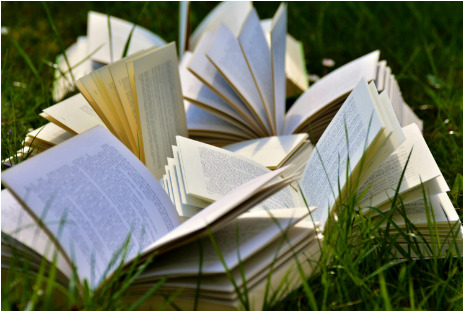
Torniamo a suggerirvi nuove letture e film “raccomandati” dai vostri bibliotecari di fiducia.
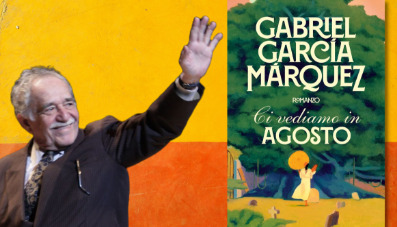
Un autentico caso letterario l’inedito di Gabriel García Márquez Ci vediamo in agosto, che, come narra la leggenda a proposito dell’Eneide di Virgilio, l’autore avrebbe voluto distruggere: “un omaggio alla femminilità, una storia di libertà e di desiderio che non si sopisce con l’età e nemmeno con l’amore coniugale”. I figli hanno consentito la pubblicazione di questo breve romanzo, che esce in contemporanea in tutti i paesi e ci delizia come una sorpresa inaspettata, nonostante la volontà del suo artefice, forse troppo esigente con sé stesso.
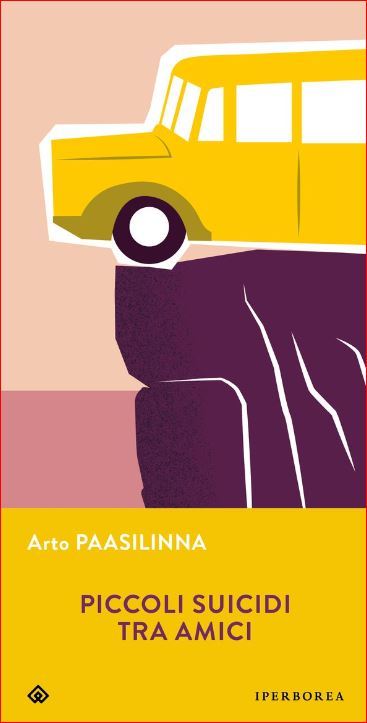
Tutt’altro che deprimente, Piccoli suicidi tra amici di Arto Paasilinna è ormai diventato un classico. Scritto con stile quasi cronachistico, la sua apparente freddezza (che peraltro ben si addice alle gelide lande della Finlandia da cui provengono i personaggi del libro) non fa che accrescere l’ironia, magari un po’ macabra, di cui è pervaso. “… ogni giorno è per ciascuno sempre il primo della vita che gli resta da vivere, anche se siamo troppo occupati per rendercene conto” è la sintesi filosofica di un romanzo divertente, originale, che si risolve in un inno non banale alla vita, alla solidarietà, all’amicizia. Un vero toccasana “per tempi agitati”, citando Mauro Bonazzi, come sono quelli in cui ci troviamo a vivere. Dalla postfazione di Diego Marani: “Una delle cose più belle dei romanzi di Paasilinna è che dopo il tumulto, il fragore e le spericolate rincorse tutto si risolve delicatamente, come una risata di cui resta solo il gioioso ricordo, nell’acqua increspata d’un lago, nel vento della sera, nell’odore di foraggio appena tagliato. … In questo libro la grande beffata è la morte”.
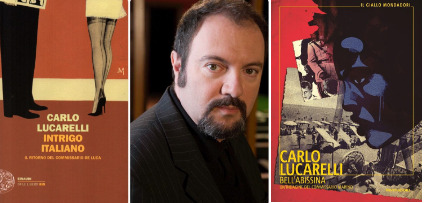
Ambientato a Bologna durante le festività natalizie tra la fine del 1953 e l’inizio del ’54, Intrigo italiano di Carlo Lucarelli ci ripropone la compagnia del commissario De Luca, sempre ombroso, inappetente e drogato di caffeina. Lo accompagna un giovane poliziotto che lo introduce negli ambienti musicali degli amanti del jazz, di cui era appassionato un noto professore morto in circostanze non chiare. Ma il mistero si infittisce quando anche la vedova viene trovata uccisa e De Luca stesso è controllato dai Servizi Segreti. Non siamo più in tempo di guerra mondiale, ma di guerra fredda e anche i migliori si devono aggiornare. Un giallo di classe, con una ricostruzione storica sempre molto accurata. È del 2022 il ritorno del commissario Marino, segretamente ma attivamente antifascista, in Bell’abissina, dopo l’esordio del 1993 con Indagine non autorizzata, quando era ancora soltanto ispettore. Si tratta di un cold case soltanto apparente, perché la serie di delitti, legati da somiglianze via via sempre più chiare, si protrae dal passato al presente pericolosamente minacciato dall’imminente scontro bellico. Marino ha un temperamento diverso da quello di De Luca e si getta anima e corpo in questa indagine che coinvolge corrotti fiancheggiatori del regime. Un incontro, come dice l’autore stesso nei Ringraziamenti, tra la storia, con la s minuscola, frutto di fantasia, e la Storia, quella del secondo conflitto mondiale che Lucarelli conosce molto bene e che ha trattato anche in diverse trasmissioni televisive.
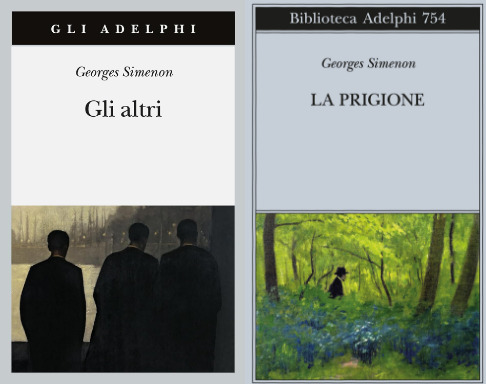
Irresistibile la doppietta di Simenon che vi proponiamo. Gli altri, inedito in Italia fino alla pubblicazione di Adelphi del 2023, è scritto in forma di diario-confessione e ci guida con il suo ritmo irresistibile tra i meandri di un suggestivo castello francese, che racchiude, ça va sans dire, una morte misteriosa, una giovane e affascinante castellana, nonché un burbero e attempato maggiordomo, sospettosamente depositario di ogni segreto… Come sempre, con pochi abili tratti l’autore descrive una serie di personaggi che non potrebbero essere fra loro più diversi, anche se appartenenti alla stessa famiglia: la sua penna riesce a far sembrare del tutto naturali e accettabili legami apparentemente inconciliabili e al limite della moralità. Il finale è riservato all’apertura del testamento: a chi andrà la cospicua eredità del vecchio Antoine Huet? Ma soprattutto: in che modo la ricchezza influirà sulla vita e le abitudini dei protagonisti? A voi il piacere di scoprirlo. Il romanzo La prigione inizia ex abrupto con un misterioso omicidio, su cui la polizia indaga. Ma duplice è la ricerca intrapresa dall’autore: da una parte il movente del delitto, dall’altra la psicologia del protagonista, costretto a scavare nella sua vita per scoprire su sé stesso e sulle persone che gli erano più intimamente vicine segreti che ignorava o che, più probabilmente, cercava di rimuovere per superficialità, paura o inadeguatezza. Così la prigione diventa una metafora per descrivere una vita fasulla che implode in un solo istante di un giorno d’autunno. Al di là del caso limite rappresentato dal fatto di sangue e delle inevitabili differenze di carattere, è talmente accurata l’analisi psicologica che ogni lettore potrebbe ritrovare qualcosa di sé nell’indole del protagonista e comprendere i suoi atti apparentemente privi di logica. Simenon, come sempre, con ritmo inesorabile e accanito vaglio introspettivo ci conduce all’unica soluzione possibile.
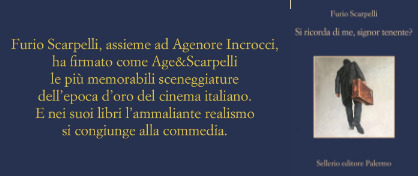
Furio Scarpelli e Agenore Incrocci hanno firmato, sotto la nota sigla di Age&Scarpelli, “le più memorabili sceneggiature dell’epoca d’oro del cinema italiano”, da Totò le Mokò di Bragaglia, a La banda degli onesti di Mastrocinque, C’eravamo tanto amati di Scola, I soliti ignoti, L’armata Brancaleone e La Grande guerra di Monicelli, per citarne solo una minima parte. Tra gli inediti di Scarpelli che Sellerio sta ripubblicando (è del 2019 Amori nel fragore della metropoli) vi consigliamo Si ricorda di me, signor tenente?, romanzo che introduce i protagonisti alternando, con la tecnica del flash back, la narrazione contemporanea al memoriale di guerra. Lo scavo nel complesso passato del personaggio principale porterà alla luce gravi traumi, profondi e rimossi sensi di colpa. Ma chi è lo sgangherato seccatore che apostrofa con la domanda del titolo il vecchio Giulio, tranquillo pensionato che passeggia per le vie della Milano del 1999? Un truffatore, un commilitone o un rigurgito della sua coscienza addormentata? Si legge piacevolmente tutto d’un fiato.
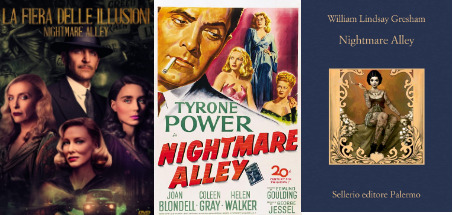
Per una lettura diversa dal solito vi proponiamo Nightmare Alley, La fiera delle illusioni di William Lindsay Gresham, “una tipica storia noir”, da cui sono stati tratti ben due film: un classico con il fascinoso Tyrone Power in una veste per lui inedita e il recentissimo remake di Guillermo Del Toro con Bradley Cooper, Cate Blanchett, Willem Dafoe. Diviso in due parti (con un finale ad anello): da un lato il fantastico, bizzarro, grottesco mondo del circo, con i suoi misteri e le sue crudeltà; dall’altra quello dell’alta borghesia, non meno pericoloso. In sintesi, il libro e i due film sono “Tre facce della stessa storia che presentano tutte letture degne di essere lette e viste per una storia che potrebbe benissimo svolgersi anche al giorno d’oggi. I prestigiatori, che siano o meno appassionati di mentalismo/spiritismo, vi troveranno molti spunti interessanti.”
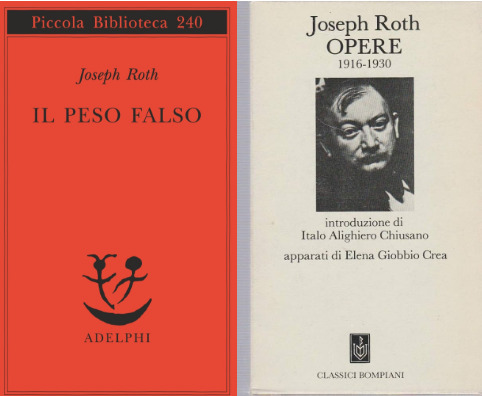
Un prezioso suggerimento dal passato: se vi fosse sfuggito, potete rimediare cogliendo dai nostri scaffali Il peso falso di Joseph Roth. Un autentico gioiello che mischia allo stile formulare dei poemi omerici, un’autentica passione d’amore e una finissima riflessione sull’essere umano, dominato dai suoi difetti, quasi deterministicamente volto verso il male, incapace di sfuggire alla tentazione del peccato, anche quando è mosso dalle migliori intenzioni. I temi sono quelli consueti della poetica di Roth, e spesso tornano anche gli stessi personaggi, che inevitabilmente cadono nella colpa: il tutto senza pessimismo né amarezza, anzi forse con una leggera sfumatura di fatalistica ironia.
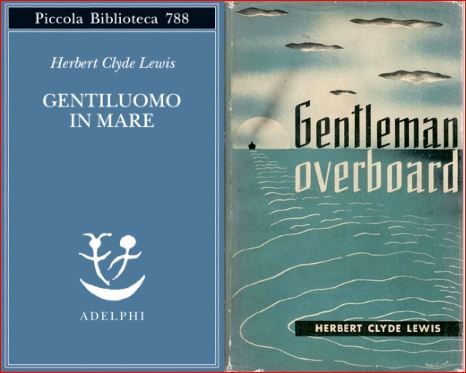
Come una diabolica matrioska le vicende biografiche dell’autore, Herbert Clyde Lewis, giornalista e scrittore americano, nato a New York da ebrei russi emigrati, si ripercuotono sul protagonista del romanzo per poi accanirsi inspiegabilmente sulle vicissitudini editoriali dell’opera che vi vogliamo consigliare, Gentiluomo in mare. Sì, perché come l’autore ebbe una vita difficile, nonostante gli incessanti sforzi profusi per affermarsi e l’indubbio talento, così il protagonista di questo delizioso romanzo breve è vittima di “una sorte bizzarra e cattiva”, per citare la splendida canzone di Lauzi-Conte, e infine la novella fu ingiustamente ignorata alla sua prima pubblicazione nel 1937 per essere poi “ripescata” (è proprio il caso di dirlo) dall’abisso dei libri dimenticati per la prima volta in Argentina nel 2010: da quel momento il successo, più che meritato anche se postumo, divenne planetario. Davvero “una perlita”, come fu definito nella recensione argentina.
#gabriel garcia marquez#arto paasilinna#carlo lucarelli#georges simenon#furio scarpelli#agenore incrocci#william lindsay gresham#joseph roth
14 notes
·
View notes
Text
C.R.B.: Cuerpo Rompe Bolas aka Ball Breakers Corp. (DOS, Kronos, 1993)
You can play this Spanish Pang clone in your browser here.
Tip: when pressing Esc, you'll need to press it twice if your mouse cursor was captured by the game.


#internet archive#dos#dos games#game#games#video game#video games#videogame#videogames#computer game#computer games#obscure games#spain#spanish#shoot em up#shmup#retro games#retro gaming#retro graphics#game history#video game history#gaming history#1993#1990s#90s
5 notes
·
View notes
Text
"Poi non è che la vita vada come tu te la immagini. Fa la sua strada. E tu la tua. E non sono la stessa strada. Così… Io non è che volevo essere felice, questo no. Volevo… salvarmi, ecco: salvarmi. Ma ho capito tardi da che parte bisognava andare: dalla parte dei desideri. Uno si aspetta che siano altre cose a salvare la gente: il dovere, l'onestà, essere buoni, essere giusti. No. Sono i desideri che salvano. Sono l'unica cosa vera. Tu stai con loro, e ti salverai. Però troppo tardi l'ho capito. Se le dai tempo, alla vita, lei si rigira in un modo strano, inesorabile: e tu ti accorgi che a quel punto non puoi desiderare qualcosa senza farti del male. È lì che salta tutto, non c'è verso di scappare, più ti agiti più si ingarbuglia la rete, più ti ribelli più ti ferisci. Non se ne esce. Quando era troppo tardi, io ho iniziato a desiderare. Con tutta la forza che avevo. Mi sono fatta tanto di quel male che tu non puoi nemmeno immaginare."
(Alessandro Baricco, da "Oceano mare", 1993)
9 notes
·
View notes
Text
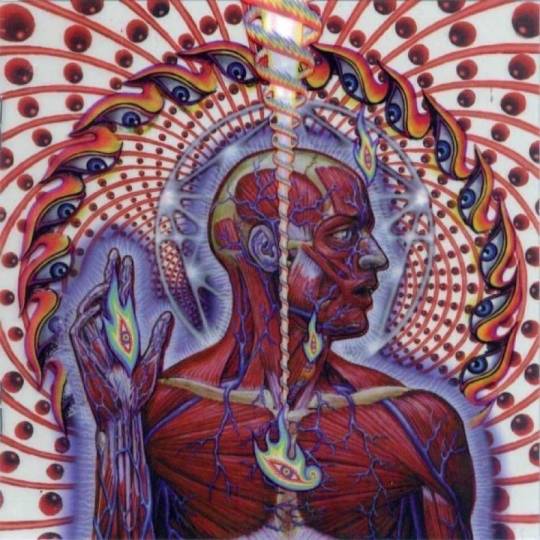
Storia di Musica #287 - Tool, Lateralus, 2001
Ho scelto di dedicare la serie di album di Agosto ad un pensiero che nella musica popolare (nel senso più puro del termine) spesso non è il primo sentimento che passa per la testa dell’ascoltatore. Sto parlando di album “impegnativi”, che capisco benissimo che come concetto è qualcosa di aleatorio, ma che nella mia idea di scelte questa volta vogliono rappresentare un certo stato dell’arte dal punto di vista tecnico musicale, e spero che da queste scelte ne possa scaturire un bel dibattito al riguardo. Il primo di oggi ci porta negli Stati Uniti ad inizio anni ’80. Maynard James Keenan nato a Ravenna (quella in Ohio) e che era compagno di corso all’Università di Grand Rapids con il padre di una mia pen friend americana, è un tipo dai mille interessi, fa due anni a West Point, la prestigiosa accademia militare americana. Li con il termine tool si intende un cadetto che segue senza nessuna esitazione qualsiasi tipo di ordine dai superiori, che spesso li usavano anche per episodi di nonnismo. Scelse Tool come nome della band che fondò nel 1990 per il principio che avrebbe fatto sempre e solo quello che gli piaceva. Inizia così il percorso di una delle più incredibili realtà musicali degli ultimi anni, capaci di rinnovare e sperimentare almeno tre generi: l’heavy metal, il progressive e la musica sperimentale. Insieme al chitarrista Adam Jones (che è anche un grande esperto di effetti visuali e scenici, e ha lavorato in pellicole come Jurassic Park), dal bassista Paul D'Amour (prima) e in seguito dal britannico Justin Chancellor (dal 1995) e dal batterista Danny Carey (quest’ultimo uno dei più incredibili e bravi batteristi di tutti i tempi) pubblica Undertow nel 1993, che pur rimanendo in un solco heavy metal elettrico ha già degli spunti interessanti, si prendano come riferimento le adesso iconiche Prison Sex e la lunghissima Disgustipated. Nel 1996 l’album della consacrazione. Ænima è infatti un disco tutto giocato sul concetto della catarsi junghiana (ascoltate la lunga Third Eye o andatevi a rileggervi la storia che riguarda questo disco) ma che ha ancora momenti di puro e durissimo hard rock (la seminale Stinkfist) e rock progressive del ventunesimo secolo (H., Forty Six & 2). Per problemi con la casa discografica passeranno oltre 5 anni per il lavoro successivo. Keenan tra l’altro non si perde d’animo ed inizia il suo progetto parallelo degli A Perfect Circle, dove cura più la sua anima heavy metal, ottenendo tra l’altro grande successo. Nel 2001, dopo aver per mesi parlato di un album intitolato Systema Encéphale, il 15 maggio esce Lateralus. Il titolo è un riferimento sia al muscolo vasto laterale (Vastus Lateralis che ci permette di piegare le gambe) sia al pensiero laterale, definizione dello psicologo Edward De Bono, che individua soluzioni non di logica sequenziale, risolvendo il problema non partendo dalle considerazioni che sembrano più ovvie, ma cercando punti di vista alternativi per trovare la soluzione. Le fotografie interne fanno capire ancora più a fondo il percorso musicale di questo album: un viaggio nella mente umana, nelle sue passioni, nelle più profonde fratture, in cerca di risposte, anche di tipo politico, religioso, spirituale con il chiaro intento di arrivare alla perfezione, quindi ad un incontro con la divinità. Musicalmente è come proiettare i Van Der Graaf Generator o i King Crimson, scontratisi con il grunge e la musica industriale, negli anni 2000. Ne esce fuori un capolavoro assoluto, dalle infinite sfaccettature musicali.
The Grudge parla del mito di Saturno che divora i suoi figli, ed è una scalata strumentale incredibile, spezzata da un urlo di Keenan che supera i 20 secondi, citando anche La Lettera Scarlatta, romanzo del 1850 di Nathalien Hawthorne. The Patient inizia lenta e sognante ma poi finisce in una contorsione ipnotica. Schism, uno dei capolavori del disco (e Grammy per la miglior canzone metal del 2002, sebbene sia una costrizione bella e buona definirla tale), cambia il ritmo per 47 volte, inizia con un tempo di 12/8, poi passa prima a 7/8 e poi a 5/8, e parlando di scismi religiosi, effettua musicalmente uno scisma metrico (che geni…). Ticks & Leeches è uno dei più incredibili brani di batteria, grazie anche alla maestria diabolica di Carey, un gigante dello strumento, e che è rabbiosa e allucinata nel canto di Keenan, che dedica la canzone a tutti coloro gli hanno succhiato il sangue dalle vene. Mantra è uno di quei giochi musicali per cui sono famosi: è la registrazione lavorata come si deve dei miagolii di uno dei suoi gatti siamesi (i primi ascolti ipotizzavano fosse una donna che in trance dicesse I Love You). Parabol\Parabola sono due brani che si fondono in uno, con una natura da cantata funebre tibetana, mistica e struggente ed una seconda di rock maestoso. La triade finale che è da considerarsi come una super suite in tre parti è formata dalle splendide Reflection, Triad e da Faaip de Oiad (che in lingua enochiana, la lingua degli angeli, significa Visione di Dio) che sono lunghe, ipnotiche e dimostrano la maestria assoluta di questi musicisti (i duelli ritmici basso batteria, la chitarra affilata come una lama di Jones, un fenomeno). Menzione speciale però ha Lateralus, una canzone che ha affascinato i fan sul significato ma soprattutto per la sua struttura: Keenan canta parole le cui sillabe seguono la successione di Fibonacci (1,1,3,5,8…), per una musica ed un testo che non seguono un andamento lineare, ma a spirale (la canzone finisce con i versi Spiral out, keep going…). La copertina, realizzata da Alex Grey, è composta da strati trasparenti con la figura di un busto umano, e man mano che si sfogliano le pagine si penetra al suo interno così da vedere in successione i muscoli, lo scheletro, gli organi ed infine, voltata la penultima pagina, si trova la chiave di accesso al mondo spirituale, nell'ultimo strato è nascosta nel cervello la parola "GOD". Quella che ho postato all'inizio è la prima ristampa europea del 2003, molto più bella della prima in assoluto, che per dovere di cronaca posto adesso:
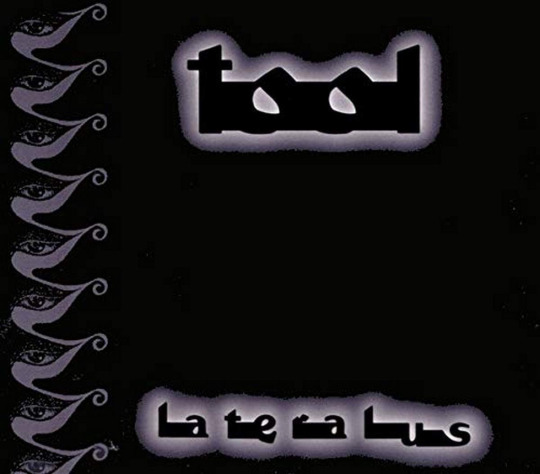
La copertina Digitale è ancora più bella, e da collezione è il picture disc olografico per l’edizione celebrativa del 2005. Dopo altri 5 anni ritorneranno con 10.000 days, che è molto meno fantasioso e mistico, ma che mantiene un ottimo livello generale. Ne passeranno addirittura 13, quando nel 2019 uscirà Fear Inoculum (da cui dovete andare ad ascoltare 7empest che racchiude un po’ l’essenza della musica Tool) la cui title track da 10 minuti e 21 secondi è citata nel Guinness dei primati per la canzone più lunga mai entrata nella classifica di Billboard. Tutta questa carne al fuoco tra musiche elaborate, testi dalle mille citazioni e dai mille simbolismi, le grafiche dark e potentissime dei dischi (tra l’altro, per riallacciarci alle storie di Luglio, le prime copie di Undertow furono censurate per le foto di donne nude che c’erano a corredo dell’album), sono facili da spiegare le tentazioni dei più maliziosi alle immancabili allusioni magiche ed occulte; resta il fatto che sono uno dei più grandi e riusciti tentativi di modernizzare la musica contemporanea degli ultimi 30 anni. E come sempre possono piacere o meno, ma resta la novità stilistica dei linguaggi e soprattutto della musica. Ascoltateli. Ne vale la pena.
24 notes
·
View notes
Text
Four Years Worth of Interesting Performances...
Sometimes there are some performances at the National Finals that stick in the mind. They may not be the ones you'd choose to revisit or blog about, but the memory of them won't leave you alone.
Here are four performances from 1992-1995 that are, well, noteworthy.
youtube
Fabienne Pétrisse - "Mon mec est dans la finance" - Belgium 1992 Last Place. There are so many Belgian performances that aren't available to see - and this is one of the ones that is. So Belgium.
youtube
K-2 - "Pepeljuge su same" - Croatia 1993 Last Place. From the first Dora in 1993. K-2 have got the velvet outfits, the frilly cuffs and the chokers. Unfortunately this is the most off pitch performance I've witnessed so far.
youtube
Megapolis - "Pushkin" - Russia 1994 8th place out of 9. Russian reggae about Pushkin and a man with a 19th century pistol who looks fairly angry about something. Why? I don't know. At least we know it's not Chekov's gun.
youtube
Master Fatman - "Jordisk Kærlighed" - Denmark 1995 4th place in final. Currently rated at 4.5 stars on Eurovisionworld.com, Master Fatman was something of a Danish celebrity in the early 1990s. In 1995 he decided to try bringing his style to Eurovision. He tried again in 1996...
#Youtube#esc#eurovision#eurovision song contest#national finals#belgian eurosong 1992#dora 1993#evrovidenie 1994#dansk melodi grand prix 1995#Fabienne Pétrisse#K-2#Megapolis#Master Fatman
1 note
·
View note